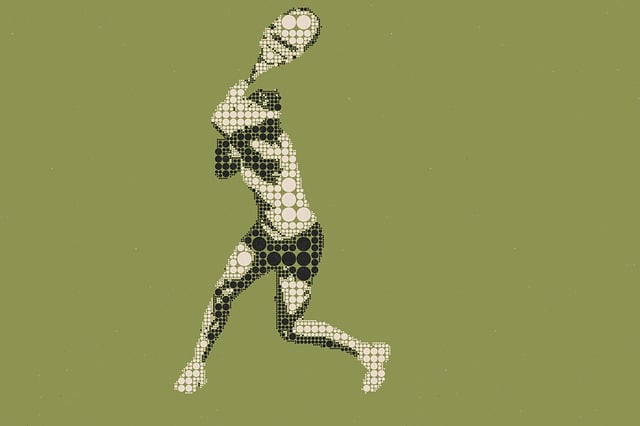Muscle soreness, especially Delayed Onset Muscle Soreness (DOMS), is a common post-workout issue. Kratom, a natural remedy with analgesic and anti-inflammatory properties, has gained attention as a potential DOMS treatment due to its interaction with opioid receptors. Scientific studies show it activates neurotransmitters that reduce inflammation and block pain signals, providing natural relief for sore muscles. However, users must be cautious regarding the Kratom Drug Test, which detects the primary active compound mitragynine in urine or blood, with positive results carrying significant consequences. Consulting healthcare providers before incorporating kratom into therapeutic routines is essential for safe and informed use.
Muscle soreness can be a debilitating condition, affecting athletes and everyday individuals alike. This article explores an alternative remedy: kratom, a natural herb gaining popularity for its potential relief. We’ll delve into the science behind how kratom interacts with the body to reduce muscle pain, understanding its causes and offering insights on safe use, including a crucial discussion on the Kratom Drug Test.
- Understanding Muscle Soreness and Its Causes
- The Role of Kratom in Relieving Muscle Soreness: Science and Mechanism
- Kratom Drug Test: What You Need to Know for Safe Use
Understanding Muscle Soreness and Its Causes
Muscle soreness, often referred to as Delayed Onset Muscle Soreness (DOMS), is a common issue experienced by folks after intense physical activity or exercise. It typically arises 24-48 hours post-workout and can last up to a week. DOMS is characterized by muscle stiffness, aching, and weakness, making daily activities uncomfortable. The primary cause of this soreness lies in the micro-tears that develop in muscle fibers during strenuous exercises. These tiny tears lead to inflammation and subsequent muscle pain. Various factors, including exercise intensity, duration, and type, can contribute to DOMS, with new or unfamiliar movements often exacerbating it.
While rest is crucial for muscle recovery, managing soreness effectively can enhance overall well-being. Interestingly, the Kratom drug test has gained attention as a natural remedy for alleviating muscle soreness. Some users claim that kratom’s analgesic and anti-inflammatory properties can provide relief from DOMS, making it a potential alternative treatment option. However, understanding the science behind its effects is essential before incorporating kratom into any soreness management routine.
The Role of Kratom in Relieving Muscle Soreness: Science and Mechanism
Kratom, a natural herb with a growing popularity in wellness circles, has gained attention for its potential muscle soreness relief properties. Beyond its well-documented effects on mood and pain management, kratom interacts with various opioid receptors in the body, offering a unique approach to alleviate muscle discomfort. Scientific studies suggest that this interaction activates certain neurotransmitters responsible for reducing inflammation and blocking pain signals, leading to a soothing effect on sore muscles.
The mechanism behind kratom’s action involves its ability to act as an agonist at mu-opioid receptors, similar to endorphins naturally produced by the body. This activation triggers a cascade of events that include reduced prostaglandin production, known to contribute to inflammation and pain perception. As a result, kratom can effectively alleviate muscle soreness without the harsh side effects often associated with over-the-counter pain relievers, making it an intriguing alternative for those seeking natural relief during or after intense physical activities, especially considering its positive impact on those who may need to pass a Kratom Drug Test.
Kratom Drug Test: What You Need to Know for Safe Use
Kratom, a natural herb with pain-relieving and mood-enhancing properties, has gained popularity for its potential to alleviate muscle soreness. However, when considering its safe use, it’s crucial to be aware of one significant aspect: the kratom drug test. This test is designed to detect the presence of mitragynine, the primary active compound in kratom, in an individual’s urine or blood.
For those using kratom therapeutically for muscle soreness relief, understanding the kratom drug test is essential. Many employers and institutions conduct random drug screenings, and positive results can have severe consequences. It’s important to consult with healthcare providers before incorporating kratom into your routine, especially if you’re subject to regular testing. By doing so, you can ensure a safe and informed experience while leveraging kratom’s potential benefits for managing muscle soreness.
Kratom has emerged as a potential natural solution for muscle soreness relief, backed by scientific evidence. However, it’s crucial to be aware of the Kratom drug test and safe usage practices to ensure a positive experience. Understanding both the science behind kratom’s effects on muscle pain and its potential drawbacks can help individuals make informed decisions about incorporating this herbal supplement into their wellness routines.














